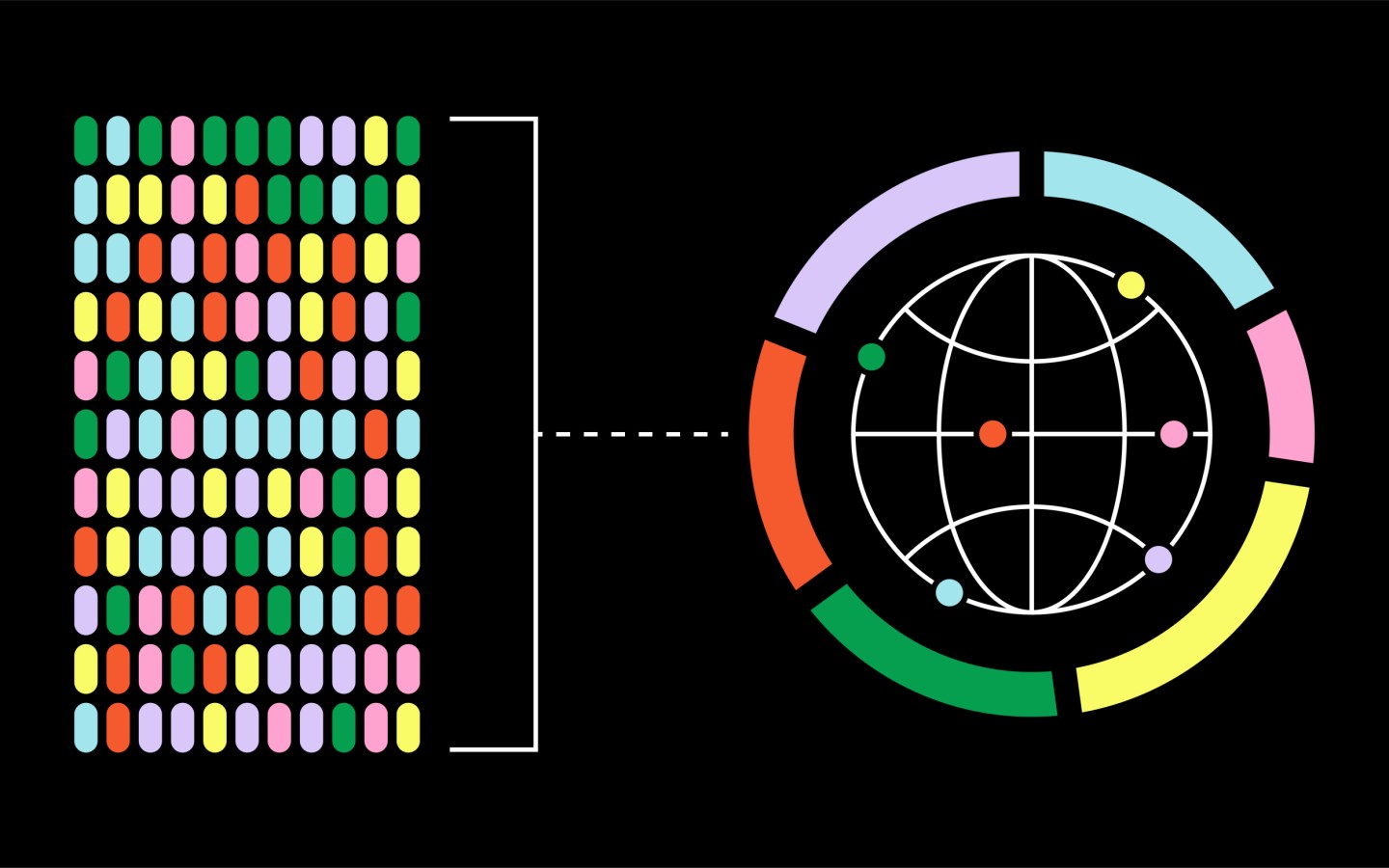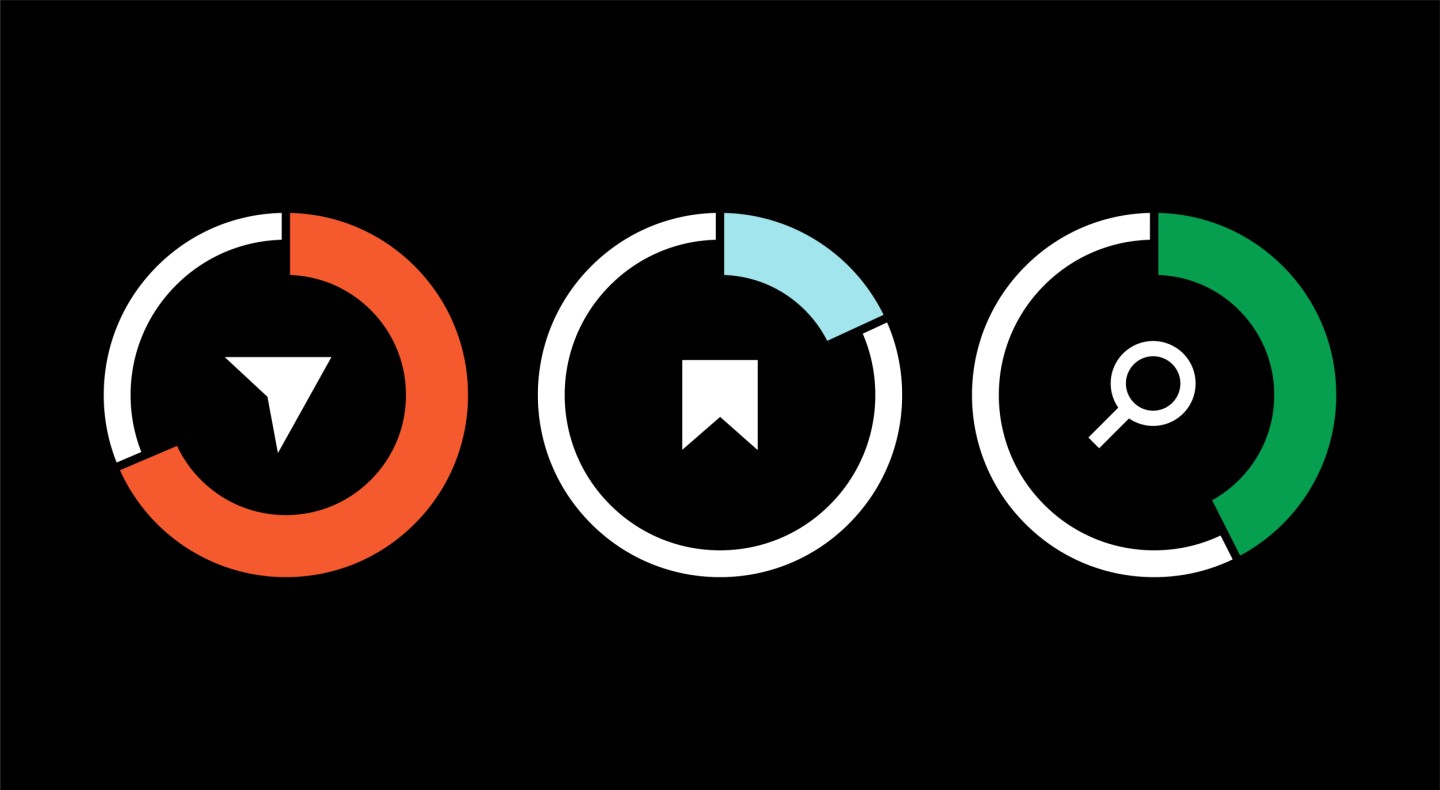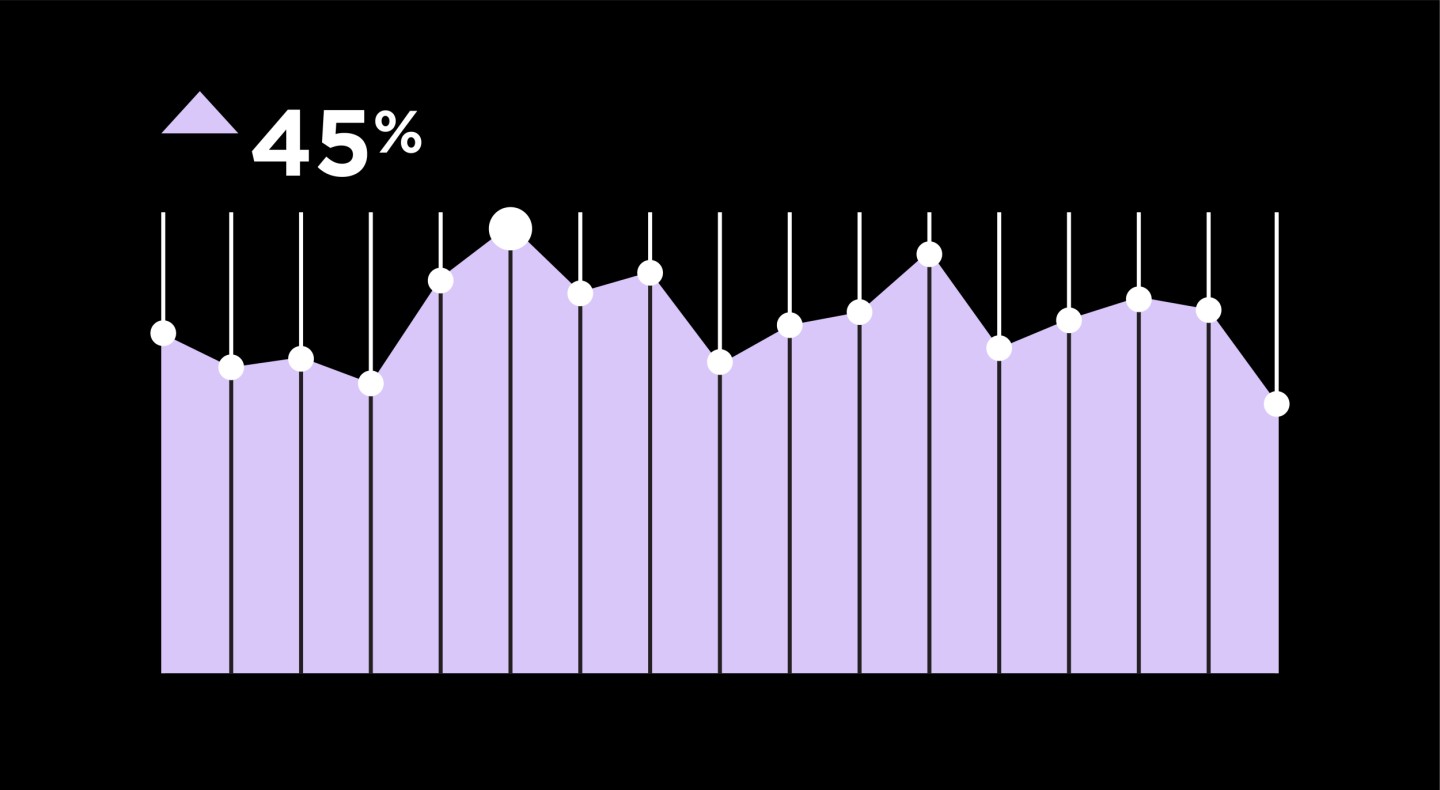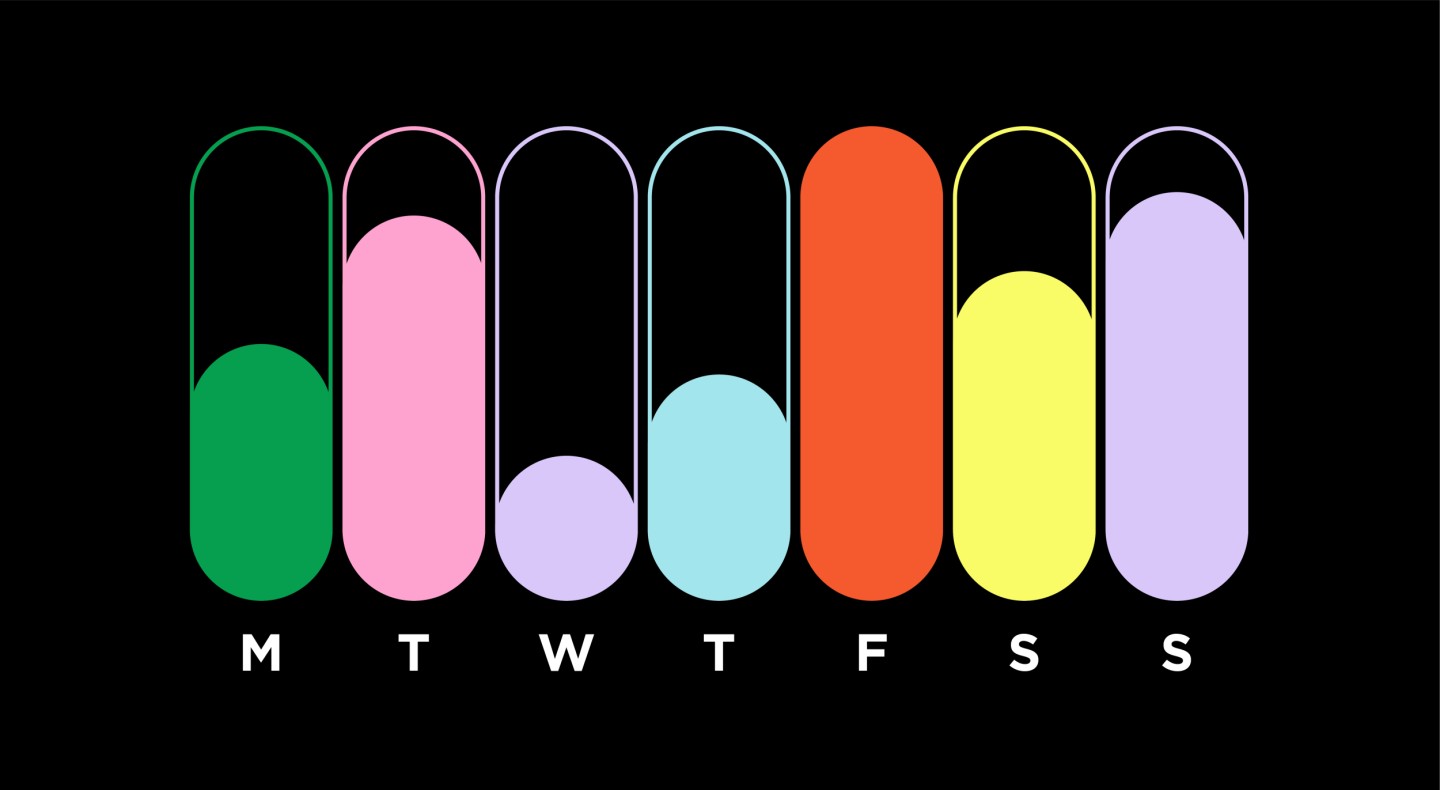
Measuring marketing success
Regular analysis of your performance across your website and social media channels is a fundamental element of understanding the effectiveness of your digital marketing efforts, enabling you to make data-driven decisions that will positively impact your business moving forward.

Using website and social media metrics to inform your marketing strategy
An essential aspect of running a successful business, a marketing strategy is a detailed long-term plan that covers who your customers are and how your business is going to use marketing to engage and nurture these customers.
Through careful consideration of various performance and engagement metrics, you can create a marketing strategy that leverages your marketing activity alongside your overarching business objectives, generating meaningful insights for targeted growth and success.
Creating your marketing goals
The first stage in creating an effective marketing strategy is understanding your marketing goals. Although your main focus should be on the long term, you can also use short-term goals as benchmarks to keep track of your progress as your business evolves.
When defining your marketing goals, you should be specific to your business while keeping it simple. Remember, different marketing goals can be tied to different stages of the customer journey and these goals will likely change over time.
Keeping track of your progress
Key performance indicators (KPIs) are the metrics that you use to keep track of your progress in line with your marketing goals, these metrics help you to gain an improved understanding of just how well your marketing strategy is performing.
Once you’ve identified your main marketing goals, you can then decide on your KPIs, delving deeper into which website and social media metrics you want to track and creating targets for each of these. To work effectively, these KPIs should be specific, measurable, attainable, relevant, and time-bound.
Need help with your marketing strategy?

Goal 1: Increasing brand awareness
Brand awareness is important for almost every business. You might have an amazing product or service, but without any sort of awareness amongst your intended audience you aren’t going to make many sales or generate any leads.
Although brand awareness can be quite hard to measure specifically, we can use website and social media metrics like website traffic, time on site, post reach, sessions per user, search volume and organic impressions to gain a better understanding.
Goal 2: Boosting engagement
Having an engaged audience indicates your content is being enjoyed and is providing value to your visitors, highlighting a strong connection between your customers and your business.
An effective way to analyse engagement is to study engagement metrics like website session duration, interactions, social post engagement and referrals.
Goal 3: Generating high-quality leads
Here at JUMP, we’re strong believers in quality over quantity when it comes to lead generation! After all, you’d rather have 10 high-quality leads than 100 leads that are unlikely to convert.
In order to generate quality leads, your marketing needs to be tailored towards your target audience. Let’s assume you're running a paid ad that’s driving traffic to your website, but you’re not seeing an increase in conversions, you may want to consider the quality of the leads you’re producing.
To track a marketing goal like this in detail, you could set your KPI to be an increase in a conversion metric like pre-qualified leads per ad or marketing campaign.
Unsure what you should be tracking?

Understanding website and social media metrics
With so much data now available, it’s important to understand that not all metrics available can be used as a stand-alone measure of success; this boils down to your specific marketing goals and objectives.
It's important to understand the different metrics available, what goals and objectives these metrics relate to and what this data actually means for your business.
Awareness metrics
Brand awareness is essentially how familiar people are with your business and can be measured using awareness metrics like reach, views and impressions.
Although awareness metrics are difficult to place tangible value on, this doesn’t make them any less important. Elevating brand awareness enhances your audience's ability to recognise and recall your business or product, propelling them from the initial engagement phase towards those desired conversions.
There are several metrics you can use to measure brand awareness across your website and social media including total users, new users, new followers, engaged posts, non-follower engagement, organic search traffic and traffic acquisition.
Do you need help with your marketing strategy?

Engagement metrics
A powerful tool in aiding your decision-making and helping you grow your business, engagement metrics paint a picture of exactly how well your audience is engaging with your content.
Let’s assume that you have an e-commerce website that sells jewellery. We can use these engagement metrics to answer key questions like “Which pages did the customer view?” “How long did the customer spend on our website or specific page?” and “How did they arrive on our site?” - empowering us to gain a better understanding of the customer journey on your website, informing our decision-making moving forward.
This is also true for your social media. By studying engagement metrics across your content and profile, you can assess how well your content is performing and begin to decipher why this might be.
Some examples of different engagement metrics include: website session duration, number of engaged sessions, average engagement time, post engagement rate and video watch time.
Conversion metrics
Conversion is often considered the most important stage of the customer journey, however, it can’t happen without both awareness and engagement.
Conversion metrics essentially tell you when your online audience completes a desired action, enabling you to analyse just how well your overall marketing strategy is performing.
Let's say you run an e-commerce business, you may set up a desired conversion on your website that relates to revenue like a sale. For social media, a conversion could be an add-to-cart from an ad you are running or a sign-up to your LinkedIn newsletter.
Some examples of conversion metrics include click-through rate (CTR), conversion rate, cost per acquisition (CPA) and form submissions.
Looking for a partner for your next project?

Why are website and social media metrics so important?
Utilising data is incredibly important, particularly when it comes to running a successful business. Without meaningful data analysis, you’re taking needless risks that could be harmful to your business in both the long and short term.
Here’s how you can leverage data and metrics to help your business to be successful:
Use data and metrics to understand your audience
Understanding your audience in detail is a fundamental component of marketing your business.
By analysing key metrics across user engagement and behaviour, your business can create content that is more likely to be consumed and enjoyed by your intended audience.
Keep track of our performance
Regular reporting on your performance across your marketing activities will allow your business to develop an increased understanding of just how well your marketing strategy is performing in line with your marketing goals.
Through careful analysis of various website and social media metrics, you can make data-driven decisions, identify areas to improve and more importantly, stay competitive.
Identify trends in the market
Knowing what is happening within the marketplace and identifying opportunities and trends as they emerge will help your business get an upper hand over your competitors.
When it comes to opportunities and threats relating to your business, it's pivotal that you can adapt your marketing strategy in accordance. By utilising various data and insights from your website and social media, you can make informed decisions and stay ahead.
Compare performance and benchmark against competitors
Comparing your performance to your competitors is a brilliant way to understand how well your marketing activities are performing compared to the wider industry.
If you have an aspirational competitor (or one with a very similar target audience) you can benchmark yourself against them across a range of website and social media metrics, studying the key differences in your content and marketing activities and using this to inform your strategy.
Looking for a strategic partner for your business?
Get our guide to optimising your social media presence
Ensure your social media is set up and optimised for your business.
Avoiding vanity metrics
With so much data available, it’s easy to get drawn into vanity metrics that don’t prove anything.
While it can be easy to report on website and social media metrics that look good at the surface level, it's vital to consider whether or not these metrics provide any value.
Studying vanity metrics like social media likes in isolation may be interesting, but what do they tell us about our campaign performance?
In some instances, these vanity metrics can provide value. However, using them as a stand-alone measure of success is inevitably going to confuse things.
How you can use website and social media metrics across your business
Utilising website and social media metrics is a critical part of running a successful business, offering valuable audience insights that you can use to inform important business decisions.
Here are some of the ways that you can convert your data and analytics into actions:
Improving the overall user experience
Harnessing data-driven audience insights to guide your decision-making is a fantastic strategy for resonating with your intended audience.
On your website, you can use data related to your audience to improve the overall user experience. For example, if you can see from your analytics that a user journey often ends at a specific page, you can deep dive into why this might be; optimising this page with improved content, buttons and features to keep users engaged.
With a significant portion of website traffic now coming from mobile devices, you might also notice that a lot of your users are now opting for mobile over desktop. This insight presents an opportunity to enhance the overall user experience by tailoring your website towards mobile users.
Focus on and improve your content
Ensuring your content evolves dynamically across your website and social media channels is pivotal in maximising its impact and helping drive towards your overarching business objectives.
Through regular analysis of your content, you can gain an elevated understanding of your audience and the content that truly resonates with them.
By understanding what makes your audience tick, you can strategically create content that you’re certain is going to be a hit before you put it out.
Improve your SEO and website visibility
A website that is optimised for search engines like Google is a must for any modern business operating online. You can have the best product or service but it’s meaningless if no one can find you.
You can increase your website’s visibility through search engine optimisation (SEO) - producing content relevant to your audience, what they are actively searching for and linking this back to your products or services.
Tools like Google’s Keyword Planner can assist you in researching exactly what users are actively searching for, how competitive these keywords are and how well they are performing in relation to other keywords.
By using this strategy, you can ensure you're producing content that’s relevant to what your audience is looking for, improving your SEO and generating high-quality website traffic.
Using website and social media metrics to drive business growth
At a surface level, website and social media metrics remove the guesswork and give you the facts, enabling you to make business decisions backed up by real data.
Through regular analysis and creating actionable insights, your business can develop a deeper understanding of your audience, their values, pain points and exactly what they want to see; empowering you to streamline your content across your website and social media channels.
However, it’s important to understand this data on a deeper level, incorrect analysis can do more harm than good.
Need help understanding your website or social media analytics?

Is your business getting the most out of your website and social media metrics?
Knowing how to properly digest and respond to all of the available website and social media metrics is undoubtedly one of the most crucial parts of marketing your business.
At JUMP, we’re experts in delivering data-driven marketing solutions that help businesses thrive. Through considered analysis of suitable website and social media metrics, we specialise in creating and acting upon insights to inspire growth within your business.
Get in touch today to learn more about how we can turn your website and social media channels into finely oiled machines.